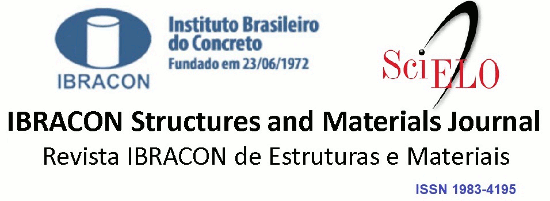abstract:
Alkali-silica reaction (ASR) is one of the most harmful distress mechanisms that affects the durability of concrete worldwide. Yet, it has been found that ASR-induced expansion and distress may be prevented by the appropriate use of supplementary cementing materials (SCMs). Recent studies suggest that rice husk ash (RHA), a by-product of the rice production, may present promising performances as a pozzolanic material and to enhance the durability of blended mixtures. There are many controversial studies regarding the use of RHA and how its properties directly affect the performance and durability of concretes and mortars. The present study aims to evaluate the influence of the RHA on ASR through the accelerated mortar bar test (AMBT), X-Rays Diffraction (XRD), Thermogravimetric Analysis (TG), Mercury Intrusion Porosimetry (MIP) and Scanning Electron Microscopy (SEM). To validate the obtained data, the results were compared with mortars made of a well-known SCM (silica fume) which has distinguished behaviour against ASR. The results indicate that, besides the silica fume mortars have showed better results, the use of RHA suggests promising results to mitigate the ASR, yet, further analysis on concrete prims test should be carried out to fully validate the use of RHA to enhance the durability of the concrete. The RHA finesses and its particle size were the most important properties in the SCM performance.
Keywords:
rice husk ash; pozzolanicity; alkali-silica reaction; particle size distribution

 Thumbnail
Thumbnail
 Thumbnail
Thumbnail
 Thumbnail
Thumbnail
 Thumbnail
Thumbnail
 Thumbnail
Thumbnail
 Thumbnail
Thumbnail
 Thumbnail
Thumbnail
 Thumbnail
Thumbnail
 Thumbnail
Thumbnail
 Thumbnail
Thumbnail









